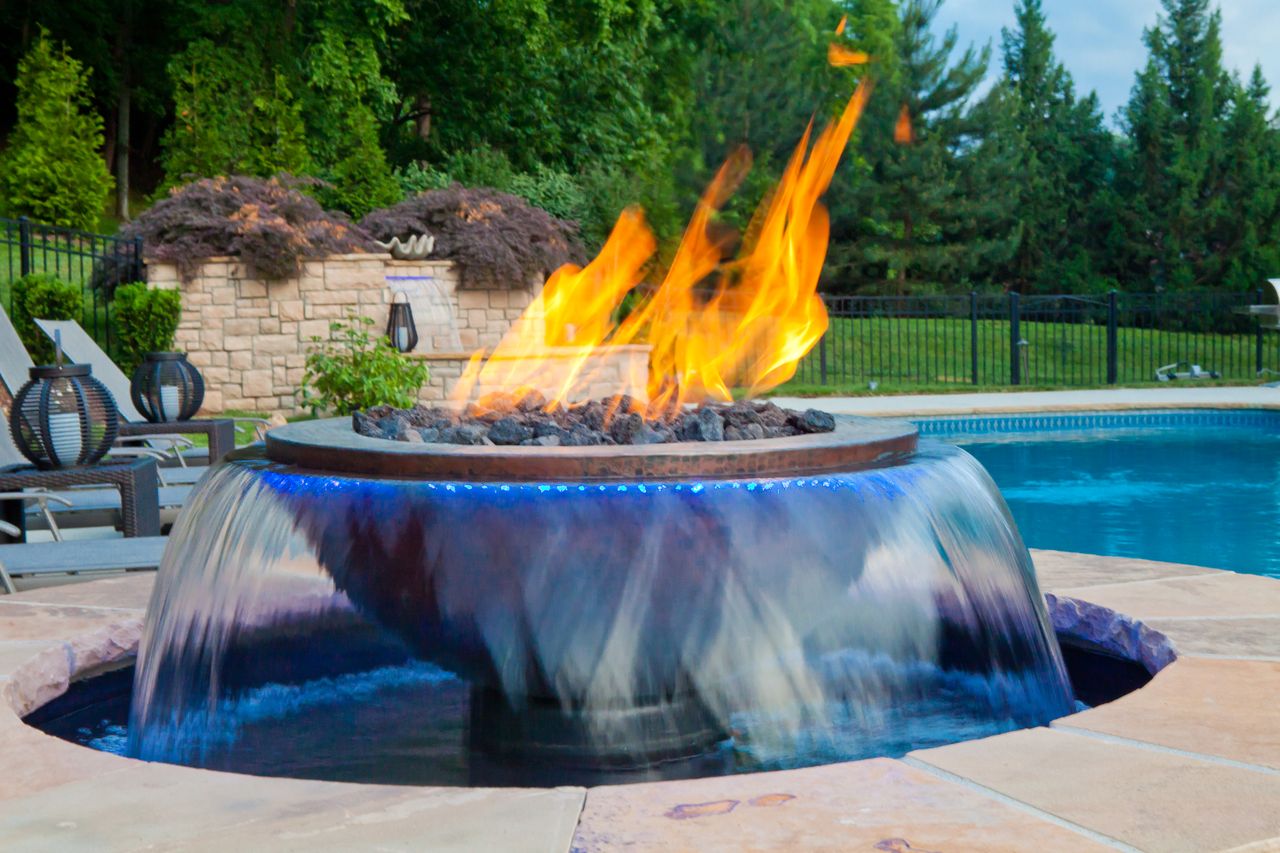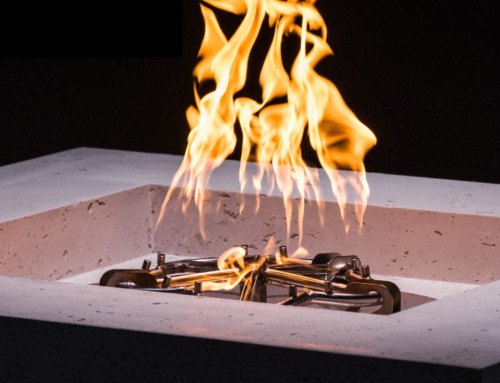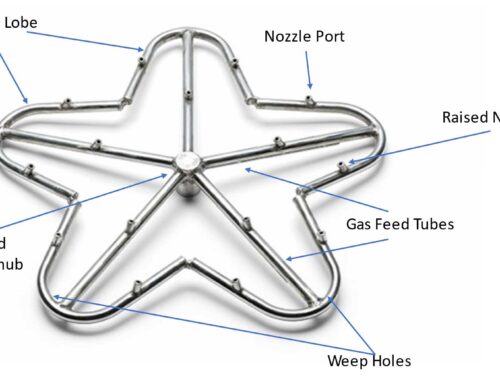HPC’s Natural Gas Vs Propane Fire Pit Appliances:
Purchasing an HPC signature fire appliance is a true investment in a quality design that will stand the test of time. HPC’s Certified NFI Technicians often field consumer inquiries around which fuel source is better; Natural Gas or Propane? The answer requires reviewing several factors that one should consider when selecting what type of fuel source the appliance will run on. This article will provide consumers education around both natural gas and propane fuel sources. In turn, this will aid consumers in streamlining their selection process honing in on what is most important to them: reviewing factors such as cost, intended use, maintenance, safety and overall efficiency.
Natural Gas VS. Propane Gas:
Gas fire pits offer many advantages as they are easy to use, require less maintenance and burn cleaner than wood burning fire features. Neither fuel source is better than the other; however, each possess certain qualities that make a certain gas type a more practical choice for specific situations.
It is imperative that consumers and installers select the correct gas type at the point of placing the order. Ordering the incorrect gas type could delay the project and cause issues with overall function. For example, when a fire feature is outfitted for one gas type but is hooked up to a different source of fuel you may see a dirty output on your flame or a low flame height. In addition, improper connection can lead to safety issues. These concerns can be easily prevented with careful planning by consumers. In effort to combat this issue, HPC has developed their patented Universal Gas Orifice Technology that allows consumers to easily convert the gas type source for their appliance. HPC was awarded the Fire Industry’s coveted VESTA award for this amazing technological advancement. This technology will be available to the market in 2023.
Differences:
While both Natural and Propane gas offer benefits, HPC would like to highlight the differences when utilizing each source in fire features to give our consumers perspective around what source might be best for their desired application.
Natural gas burns cleaner as there are less carbon molecules in this fuel source. This fuel is lighter than air so it dissipates faster; therefore, natural gas features do not require an air mixer. In terms of installation, natural gas appliances require permanent infrastructure. This will increase the initial cost for the project upfront as one will need to work with gas professionals to ensure proper installation. However, once the infrastructure for natural gas is set up it offers many benefits; such as a constant, convenient supply of gas and long term cost savings.

If a consumer desires a portable option; HPC’s propane fire features offer versatility and durability. For example, HPC offers a Ready to Finish (RTF) with the possibility of building the unit into a permanent structure. Installers may utilize a stub for the LP source or simply place the LP tank on top of existing pavers hiding the fuel source within the unit. Another great example of a propane offering is HPC’s Fire inspired Sport pit. This fire appliance is great for camping or tail gating at sporting events. Its’ portability with easy twist on lid for transporting offers versatility. HPC’s sport pit is outfitted with a flame rectification system that provides consumers peace of mind, as this safety feature automatically turns off the gas supply in the event that the flame is blown out. Propane Gas delivers more BTUs for your dollar. The Propane flame appears more orange in color because there is a higher concentration of carbon molecules which makes it more combustible and burn hotter. Therefore, propane appliances require an air mixer to increase air flow. In turn, over the course of time propane will cause an output of soot. To properly maintain your fire appliance, HPC recommends cleaning of the media to avoid soot build up.The best way to clean the media is to remove the media from the pan and then clean the media in a bucket filled with mild soapy water.
Overall, both fuel sources provide benefits. At the end of the day, consumers should weigh which fuel source best fits the intended use and lifestyle. Considering these factors will lead to identifying the best option.
Customer Service:
As always HPC prides itself on the service of our consumers. From the development of quality and safe products to providing education and accessibility to HPC Fire Feature Experts. Have any questions or concerns, contact our NFI Certified Tech Team at 937-436-9800. Let our team guide you to the fire feature of your dreams.




